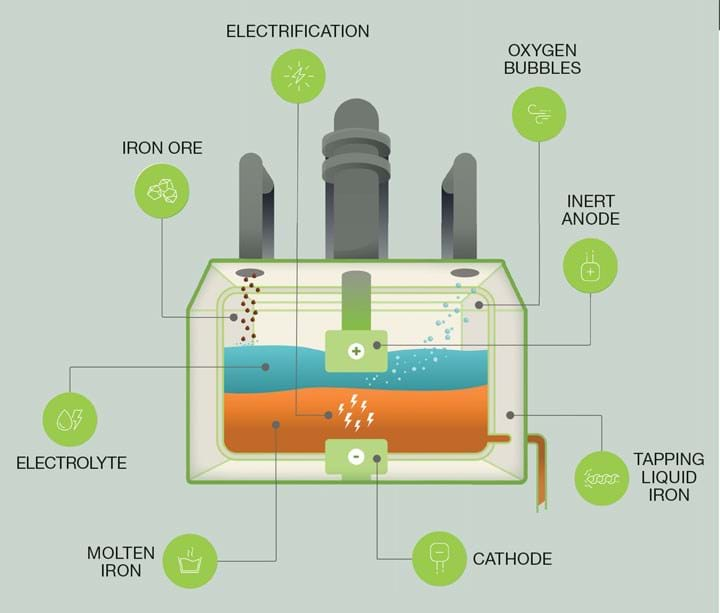Boston Metals’ electrified process starts extracting valuable metals from mining slag
A PILOT plant that recovers metals from mining waste has started operations in Brazil, as developer Boston Metals scales technology that it hopes will lead to greener steel production.
The company has built a molten oxide electrolysis (MOE) plant to extract iron, tantalum and niobium from the industrial slags left over from tin production. Mining waste is added to a reactor containing an electrolyte that is heated, and molten alloys are tapped off from the bottom of reactor.
“This first commercial deployment represents a beacon of progress in advancing sustainable metals production,” Tadeu Carneiro, CEO of Boston Metal, said at the plant’s opening ceremony in the state of Minas Gerais earlier this month.
Boston Metals says the technology can be used by mining firms to turn a profit out of waste they currently have to store, while reaping the benefit of using a process that is cheaper than conventional ferro-alloy production techniques.
The pilot plant is expected to produce around 400 t/y of metals. A larger demonstration facility is now under construction, and is set to be operational by the end of the year. The company then plans to start up a 10,000 t/y facility in 2026.
A spokesperson said the alloys produced from the iron, tantalum, and niobium can be sold for use in various applications including making steel and electronics.
Carneiro said the operations in Brazil will support its efforts to scale the technology for green steel production. By using renewable electricity to power its process, the company aims to wean the steelmaking industry off the use of coal. The company says its technology would also simplify production by eliminating the need for coke production, iron ore sintering and pelletising, and blast furnace reduction or basic oxygen furnace refinement.

Developers are racing to help an industry responsible for around 10% of global CO2 emissions find greener ways to produce steel. This includes efforts in the US and Australia to use hydrogen for direct reduction. Last year, Boston Metal explained to TCE how its MOE process could decarbonise steel production.
Meanwhile, mining waste has proved a fatal issue in Brazil. A number of high-profile failures have seen tailing dams release torrents of waste that have killed people living nearby.
Recent Editions
Catch up on the latest news, views and jobs from The Chemical Engineer. Below are the four latest issues. View a wider selection of the archive from within the Magazine section of this site.




